“Small businesses are doing their part in decreasing reliance on single-use plastics, and are proving that it is possible,” said Marian Ledesma, Zero Waste Campaigner for Greenpeace Philippines. “There’s no excuse for major corporations not to follow suit.” QUEZON CITY, Philippines — Micro, Small and Medium Enterprises (MSMEs) may seem miniscule, but a growing number
“Small businesses are doing their part in decreasing reliance on single-use plastics, and are proving that it is possible,” said Marian Ledesma, Zero Waste Campaigner for Greenpeace Philippines. “There’s no excuse for major corporations not to follow suit.”
QUEZON CITY, Philippines — Micro, Small and Medium Enterprises (MSMEs) may seem miniscule, but a growing number of them are determined to show larger companies that greening the manufacturing and retail sector should be everyone’s business.
In an event titled “Reduce, Reuse, Refill: 3Rs to End Plastic Pollution,” environmental advocates, the Department of Trade and Industry (DTI) and progressive business groups enjoined other MSMEs to reduce their production and consumption of single-use plastics (SUPs) and adopt more sustainable practices. Said initiative aims to build the capacity of MSMEs to lead the shift toward environmentally responsible business operations.
This brought MSMEs to the Las Piñas-Parañaque Wetland Park (LPPWP) for a field immersion and discussion on Tuesday. The LPPWP, which is home to over 41 migratory bird species and the threatened and endemic Philippine duck,[1] faces severe threats from plastic pollution. The activity sought to raise awareness among local businesses about the destructive impact of SUPs on ecosystems and communities.
“Small businesses are doing their part in decreasing reliance on single-use plastics, and are proving that it is possible,” said Marian Ledesma, Zero Waste Campaigner for Greenpeace Philippines. “There’s no excuse for major corporations not to follow suit.”
MSMEs comprise 99.59% of all business establishments in the Philippines.[2] According to Ledesma, the potential behind their considerable numbers play a pivotal role in sparking changes in the industry. “This includes transitioning prevailing business models away from SUPs and influencing consumers in their respective communities,” she continued.
Participants in the event included fisherfolk, community members, and waste workers who shared firsthand experiences of how plastic pollution affects food security, environment and livelihood. Over 164 million plastic sachets and 57 million shopping bags are discarded every day[3] in the Philippines and much of which are not recycled.[4] Instead, they end up in landfills or waterways, contributing to pollution and the climate crisis.“Sinisira [ng mga plastic] ang aming mga gamit pangingisda at itinataboy ang mga isda sa malayo. Dagdag perwisyo sa panggastos sa gasolina. Natatabunan at pinapatay [nito] ang mga bahay itlugan, bahura, bakawanan, at mga halamang dagat,” shared PANGISDA Pilipinas Chair Pablo “Ka Pabs” Rosales.
“Nanawagan kami sa ating makakalikasang mga negosyante, na pangunahan ang pag-iwas sa… single-use plastic na siyang pinakamarami sa karagatan at kalat sa kapaligiran. Suportahan ang pagsisikap ng mangingisda na linisin ang baybayin at karagatan para sa pagpapanumbalik ng kasaganaan at luntiang kapaligiran.”
Upstream solutions such as reduction, reuse and refill are aligned with the DTI’s Green Economic Development program. These approaches aim to enhance MSME competitiveness by helping businesses adopt climate-smart, environmental-friendly, and inclusive strategies.
“Sustainability is our only option for a better tomorrow; it is a crucial aspect of business resilience and long-term success,” said DTI-National Capital Region OIC-Regional Director Winston T. Singun. “There are no businesses to speak of in an inhospitable future, plagued with various environmental crises. MSMEs have the power to make a positive impact not only in our economy, but also our planet.”
Following the nature walk were sustainability discussions in Talyer 15 at the Henry Hotel Compound for discussions led by business owners championing sustainable plastic reduction efforts. The session featured entrepreneurs and communities who have successfully employed viable, practical, and innovative alternatives to plastic use, paving the way for a just zero waste transition.
Leading the charge in the “Greening Your Business” discussions are speakers from Back to Basics Ecostore, Newport World Resorts, San Juan Resort Restaurant and Hotel Association (La Union) and Rizza Lana Sebastian. The panelists shared their expertise on how to “green” the supply chain, how to reduce plastics in tourism, and how to practice sustainable communications. Reuse and refill solutions such as those applied by Kuha sa Tingi[5] (Greenpeace Philippines), JuanaZero[6] (Mother Earth Foundation), Sabon Express, and Good Food Community were also tackled to mitigate the crisis.
Greenpeace Philippines is optimistic that more MSMEs take part in interventions that address plastic pollution at the source. A number of attendees have expressed their willingness to break free from plastic and be a part of community-driven solutions that help create a zero-waste system.
The field immersion and sustainability discussion is an initiative under Champions of Change, a growing global collective of forward-thinking businesses committed to transitioning towards a plastic-free future.
Notes to editors:
[1] LPPWP as 6th Ramsar Site in the Philippines
[2] 2022 Philippine MSME Statistics in Brief
[3] Sachet Economy: Big Problems in Small Packets
[4] Production, use, and fate of all plastics ever made
[5] REUSE AND REFILL for a Plastic-Free Future
[6] JUANAZERO: A Zero Waste store of Mother Earth Foundation
Please credit the photos to: Jilson Tiu / Greenpeace
Here’s what the Champions of Change have to say:
“With plastic pollution, there’s the obvious issue that it can harm certain marine animals, especially turtles. There have been a lot of studies showing that plastics, especially when they break down into microplastics, can actually threaten coral populations. I think that’s why it’s really important for us to fight against plastic pollution because they affect the entire marine ecosystem.” — Denise Sze, Marketing Executive of Magwai
“From the mountains of plastic in our cities to the microplastics that are now everywhere, we are causing serious health consequences from chemicals that leach into our waterways. Committing to a plastic-free future is a really important thing. We just need to make that decision on what kind of infrastructure and what kind of culture we need to support this commitment. These are really exciting ways of working with the community so that we can make this happen.” — Charlene Tan, Founder & CEO of Good Food Community
“Lagi lang po natin isipin na isa lang naman talaga ang mundo. Hindi tayo pwede magkaroon ng satellite earth or another earth. And ‘yung mga plastic na basura na itinatapon natin in this lifetime, it would take 400 to 500 years to decompose. So, siguro po yung isapuso lang po natin at isaisip yung katotohanan na yan. Siguro ‘yun po ‘yung magda-drive sa ating lahat [para ilaban ang pagbabago].” — Mellany Zambrano, Founder & CEO of Sabon Express
“So with this Global [Plastics] Treaty, what is more exciting about it is the fact that it’s looking at the end-to-end supply chain for plastic. It’s not just looking at waste management… It’s looking at the producers… They’re looking not just to penalize the end, but reduce the demand. From the treaty, I want to see more responsibility going back on those companies that are producing plastic bottles.” — Rob Boreham, Managing Director of Hospitality Innovations by Quorate Inc.



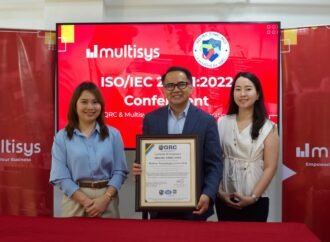
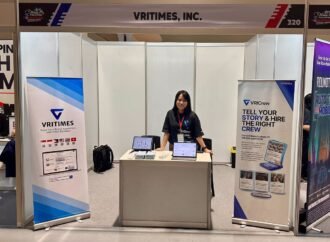

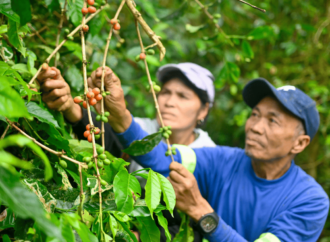

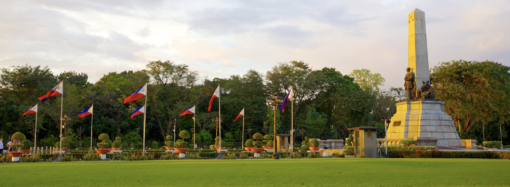


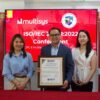


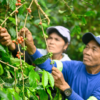




Leave a Comment
Your email address will not be published. Required fields are marked with *